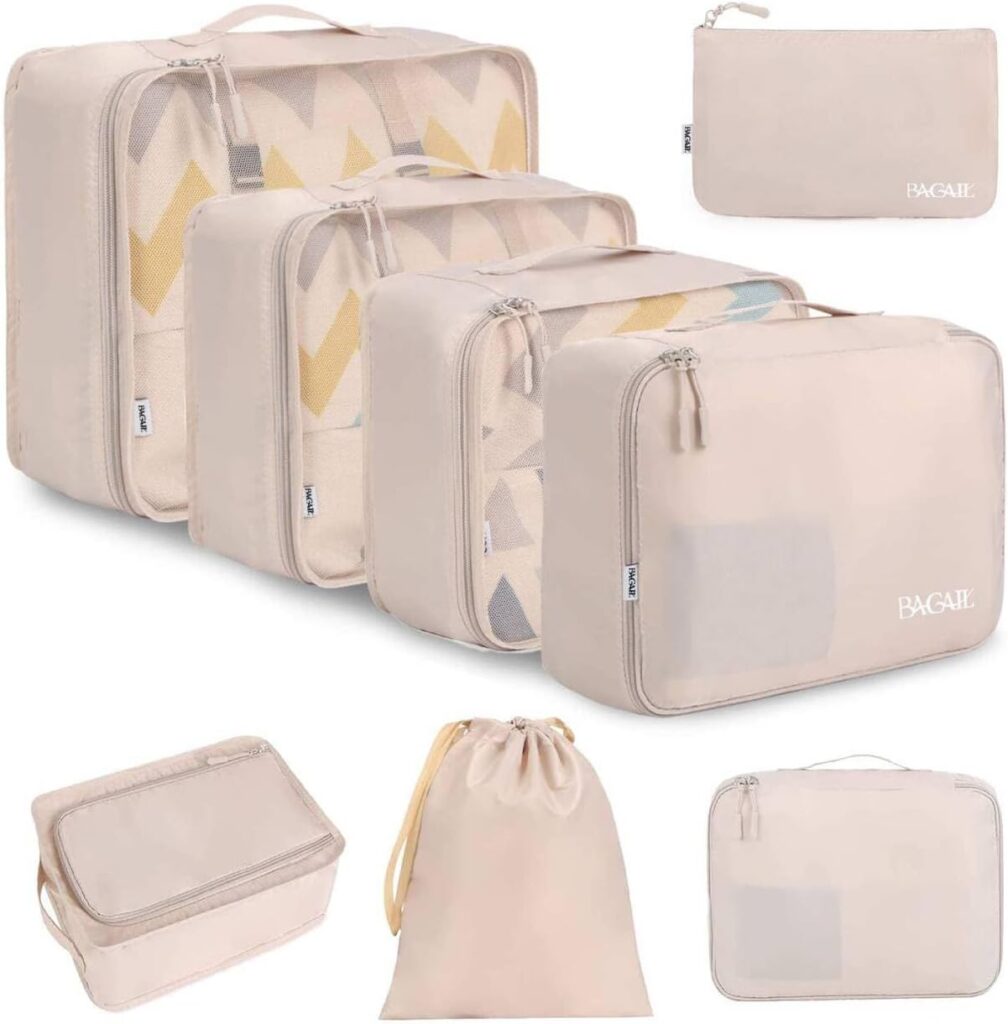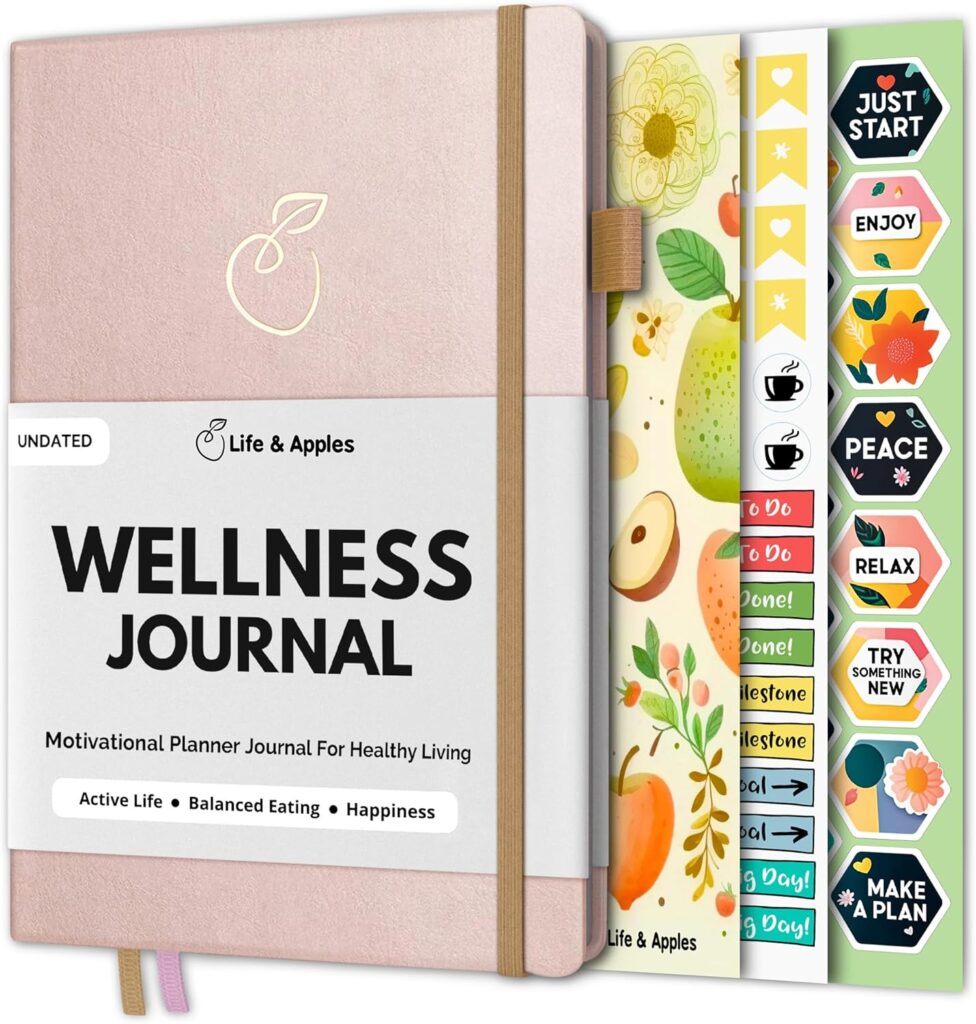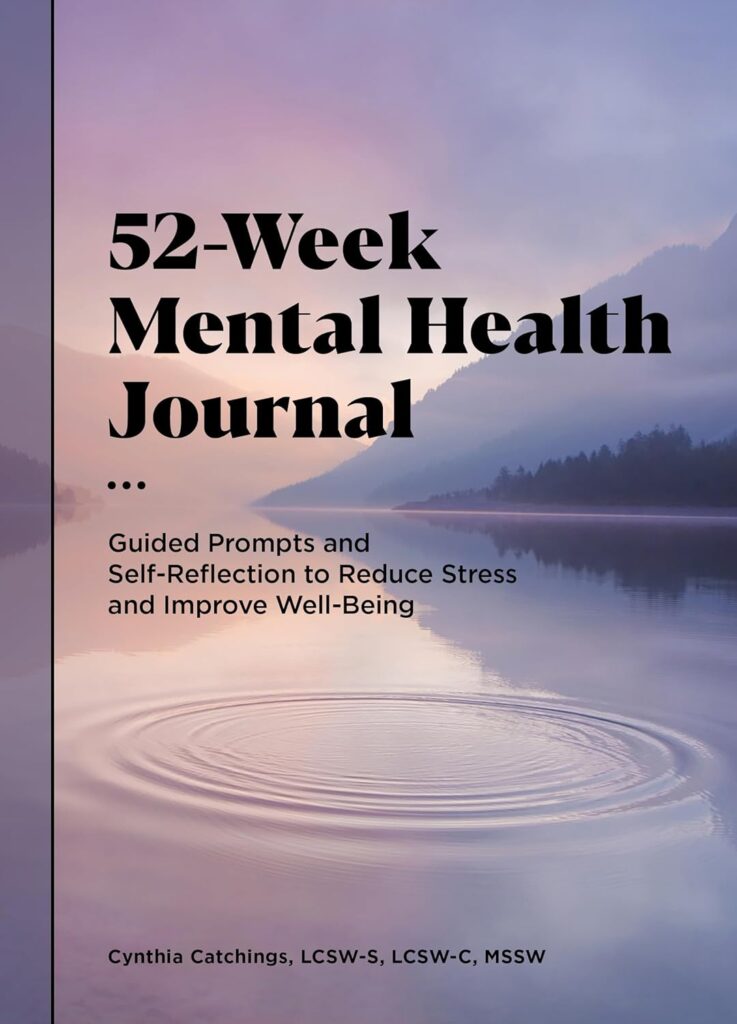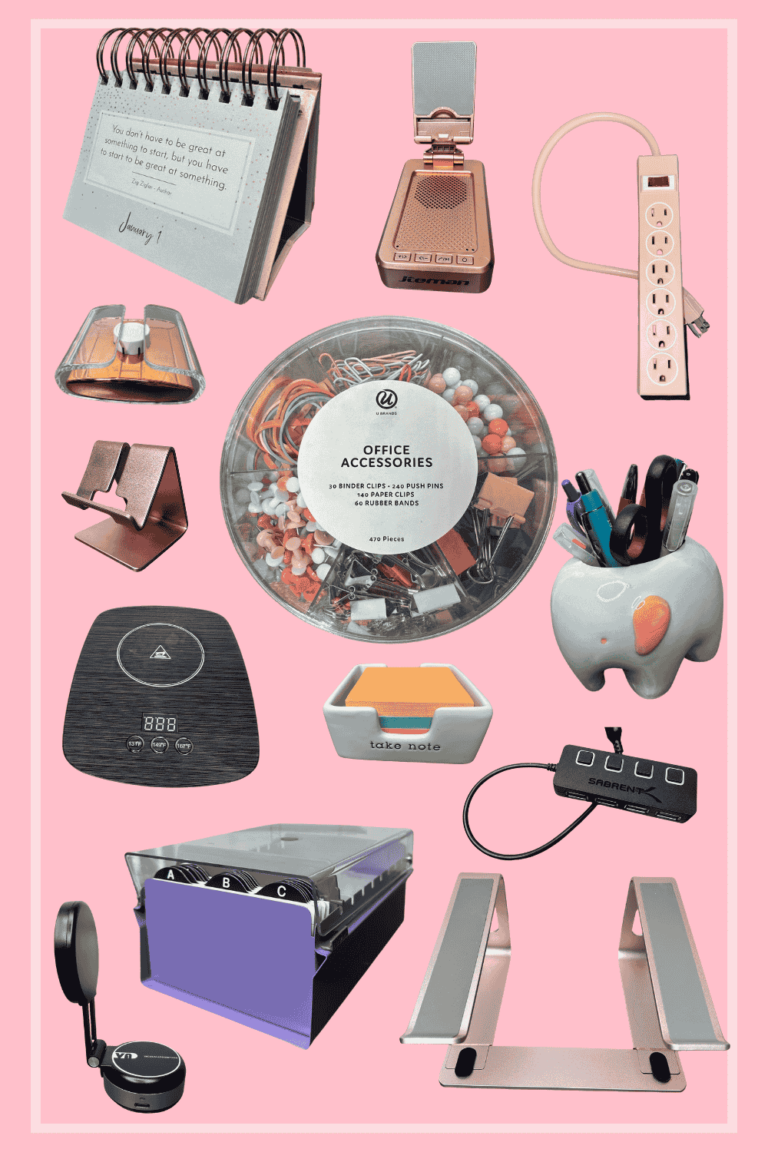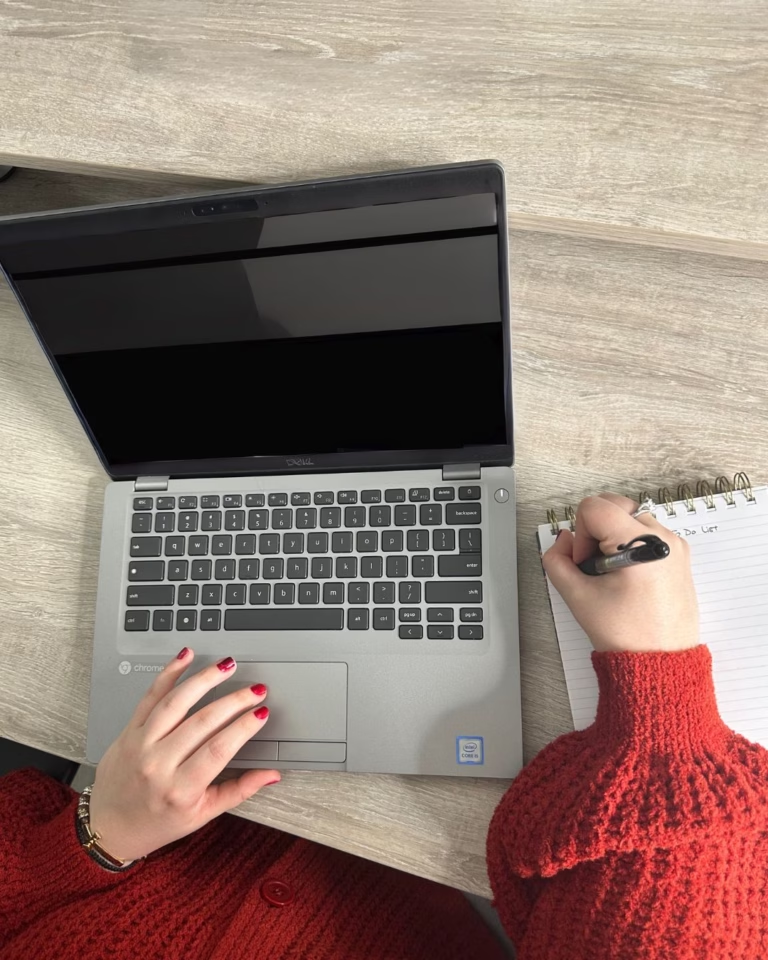11 Smart Strategies to Overcome Work Travel Stress and Stay Productive
This site contains affiliate links, view the disclaimer for more information.
Do you want to know how to effectively overcome work travel stress? Keep reading to learn the 11 strategies you can start implementing today to get the most out of your next work trip.
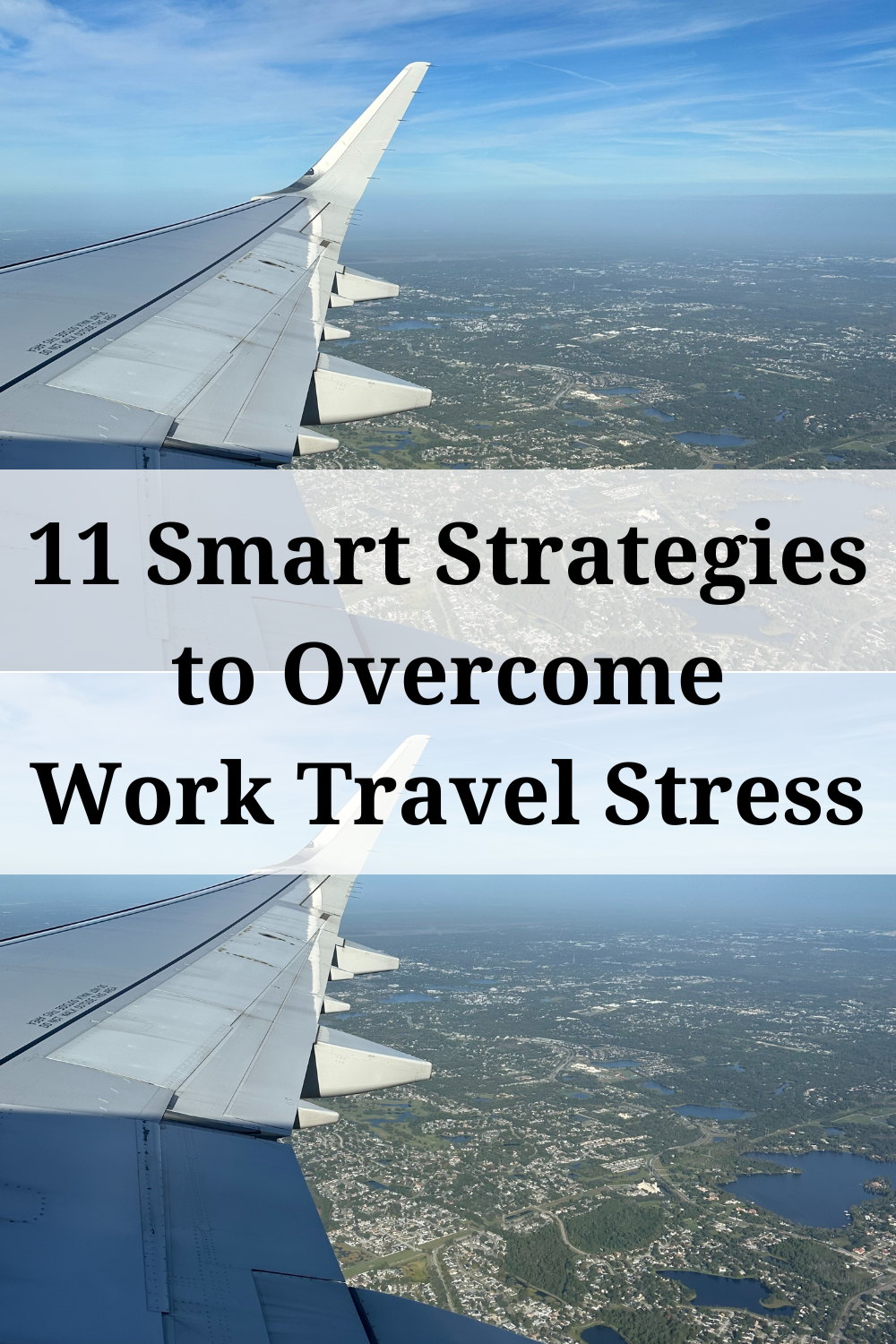
While being invited on a work trip can be full of exciting and unique opportunities, it can easily become just as dreaded and draining. It’s very common for work travel stress to creep in when you’re busy trying to keep up with ongoing work demands while also booking your travel accommodations, planning out-of-office coverage, then figuring out what you’re even bringing or doing for your trip—aside from the obvious. Regardless of what kind of trip you’re going on, it’s no secret that work travel stress can quickly begin to impact our productivity and overall well-being— that is, when not done with the right strategies in place.
As someone who travels for work, I can tell you that these strategies WORK if you’re ready to get past the stress and get straight to business (or dare I say–fun?!).
From planning ahead and staying organized to leveraging helpful apps and maintaining a routine, this post will teach you how to manage stress while also balancing work and personal time during your business trips.
After adopting these strategies, you will be able to better manage stress and stay productive during your next work trip.
Say it with me: “Who is Stress? We don’t know her!”
Don’t forget to pin this!
Make sure to pin this image here and save it to your Pinterest board. That way you can easily come back to this page and learn the top strategies for reducing work travel stress while staying productive.
11 Strategies to Overcome Work Travel Stress
1. Plan Ahead & Organize Your Itinerary
The key to reducing work travel stress begins before you even step foot out the door. By planning ahead and organizing your itinerary, you can eliminate any last-minute hassle and ensure you have enough time to get everything done.
Here’s how to do it:
- Book Travel & Lodging Early: Booking your travel details ahead of time will increase your chances of getting the accommodations you want, such as flight time, rental car type, or hotel location. Nobody wants the last pick!
- Create a Detailed Schedule: If you already have an itinerary provided by your company, great! Let’s build up on that.
- Make sure your itinerary includes all personal scheduled transportation, lodging details, dining reservations, meeting times and locations, and any other pertinent details for your trip.
- Then, look for open slots and use time blocking to set aside time for yourself to freshen up, grab a snack, or take care of any items that weren’t addressed before the trip (like following up with your teammate and scheduling that meeting for next week).
- Set Buffer Times: When planning your day-to-day, incorporate buffer time between meetings or tasks to allow for bathroom breaks, delays, or extra preparation. This will ensure you’re not racing from one engagement to the next.
2. Set Clear Goals for Your Trip
Having clear goals for each trip can help you stay focused and reduce feelings of overwhelm from work travel stress. When you know exactly what you need to accomplish, it becomes easier to prioritize tasks and stay productive, despite any challenges.
Here are the steps to take:
- Identify Your Goals: Before your trip, take some time to think about what your key goals are—whether it’s attending a specific meeting, networking with certain individuals, or giving a presentation. Knowing your top priorities will help you stay on track and avoid any distractions. Then…
- Slot Time to Achieve Your Goals: Revisit your itinerary and outline which days/times will give you the best opportunity to meet these objectives. Lastly,
- Track Your Progress: Throughout your trip, keep track of your accomplishments to help maintain a sense of achievement. This can reduce the stress that comes from feeling like you’re not getting things done and can help you stay motivated.
3. Use Mobile Apps to Stay Connected and Informed
Trying to keep up with work while traveling on-the-go can be rather difficult, so having quick and easy access to work tools without having to whip out your laptop can be a huge stress relief. One solution for staying on top of your responsibilities with speed and ease is utilizing mobile apps (such as on your phone or tablet).
Here are some examples:
- Travel/Lodging Apps: Most hotels, taxi services, and travel companies have an app you can download on your mobile device. Simply book your travel via these apps or enter your booking confirmation details to track updates leading up to your trip. You can get notifications on i.e. when your flight is ready for check-in, when your hotel room is ready, if your flight gate number changes, if your flight is delayed, and more.
- Cloud-Based Apps: Download apps like Google Drive, Dropbox, or SharePoint to access your documents and ensure you have everything you need while traveling. This way you don’t have to lug stacks of papers from one place to the next
- Communication Tools: Stay in touch with your coworkers and clients using apps like Slack, Zoom, or Microsoft Teams. Do you use tools like Wrike or Asana to communicate with your team? You can download those too!
- Task Management Apps: Organize your to-do list and track your progress using tools like Todoist, Notes, Reminders, or Google Tasks. These apps help you stay on top of your tasks and make sure nothing falls through the cracks while you’re traveling.
4. Pack Smart, Comfortable, and Light
Traveling for work can often involve unpredictable circumstances, from flight delays to unexpected changes in schedules. However, by being prepared and packing smart, you can minimize stress and handle any situation with ease.
Here’s a starting point:
- Pack Smart (by creating a pack list!): Curate a packing list is the most foolproof way to make sure you’re accounting for everything that you need. If you don’t have much time or much space for packing, simply jot down all the items you can’t easily buy at the local store in your travel destination— such as work equipment and chargers, personal tech gear, daily-routine beauty products, medicines, and/or accessibility aids. I always suggest packing some reading material or work that can be done offline in case your travel plans get delayed — oh, and don’t forget the snacks! Working is no fun when you’re hangry.
- Pack Comfortable: Comfortable and professional don’t need to be mutually exclusive. Whether you want to go the athleisure route or style down a blazer, be sure to pick options that are suitable given your travel circumstances. For example, a blazer might sound nice but if you’re getting ready to board a 10-hour flight, you might be better off with yoga pants and a comfy jacket.
- Pack Light: Avoid the stress of dragging heavy luggage around by packing only what you need. Pro tip: use packing cubes! These will keep everything organized and also maximize the space you have in your suitcase or backpack.
5. Delegate and Prioritize Work Tasks
One of the main sources of work travel stress is the feeling that you have too much on your plate. By offloading some of your responsibilities, you can better focus on high-priority tasks needing your attention, reduce the feeling of being stretched too thin, and overall mitigate work travel stress.
Here’s how to do it effectively:
- Delegate Tasks: If possible, delegate responsibilities to your team members who will not be attending the work trip. This will help keep the ball rolling even while you’re away.
- Prioritize Key Tasks: Determine which tasks require your immediate attention and which ones can be postponed. This way you can stay on top of essential work without feeling overwhelmed.
- Set Realistic Expectations: Be honest about what you can achieve while traveling and communicate your availability and limitations with your colleagues. Setting realistic expectations is crucial for reducing the pressure that often contributes to work travel stress.
6. Clean your Home Pre-Departure
One of the best ways to eliminate work travel stress (*cough cough* my personal favorite) is by tidying up your living space before leaving for your trip. A clean, organized home provides peace of mind and eliminates the nagging thought of having to come back home to a bunch of chores after traveling. This means you’ll have one less thing to worry about while on your trip, and rather more time to focus on your work and personal well-being.
Here are some suggestions:
- Tidy up the Kitchen: Wipe down the counters, load the dishwasher, and take out the trash before you leave. Coming home to a clean kitchen makes that next cooking session go much more smoothly.
- Organize Your Living Spaces: Straighten up your living room, make your bed, and clear clutter so when you get home again, all you have to do is kick back and relax.
- Handle Laundry Before You Go: Wash, fold, and put away laundry so you don’t have to face an overflowing basket when you get back.
7. Maintain a Routine When Traveling
One of the most effective ways to manage work travel stress is by maintaining a familiar routine, even when you’re away from home. Having structure helps create a sense of normalcy, making it easier to stay productive and mentally grounded during your trip.
Here are some ways to establish a routine:
- Set Regular Work Hours: Stick to your usual work hours, if possible, to prevent your professional life from bleeding into your personal time. This helps you manage your workload and reduce the feeling of being “always on.”
- Maintain Exercise: Physical activity is a proven stress reliever. Incorporating exercise into your travel routine, whether it’s a morning walk, 10-minute stretch, or a visit to the hotel gym, can significantly reduce work travel stress and boost your energy levels for the day ahead.
- Sleep Well: Travel can disrupt your sleep patterns, leading to fatigue. Ensure you prioritize quality sleep, even when traveling, by establishing a pre-bedtime routine. Consider using sleep aids like white noise machines, ear plugs or sleeping masks to help you relax in unfamiliar environments.
8. Take Advantage of Downtime
Pro tip here! Are you ready? Look for ways to use your downtime productively. By turning downtime into an opportunity for personal development or leisurely activities, you not only reduce work travel stress but also return from your trip feeling refreshed and more capable.
Here’s a few ways to take leverage downtime:
- Read or Listen to Podcasts: Travel time, whether at the airport or on the road, is the perfect opportunity to catch up on reading or listen to your favorite podcast (any Crime Junkie fans here?).
- Catch up on your Favorite Flicks: Download your favorite TV show or movie to your device so you can watch it on the go. This is a great way to temporarily shut off those work thoughts and hone into more leisurely entertainment.
- Take Online Courses: Many platforms, such as Coursera and LinkedIn Learning, offer online learning opportunities that you can complete on the go. Use your travel time to enhance your skills, whether they’re related to your industry or something you’re passionate about.
9. Maintain a Healthy Work-Life Balance
Constantly working while traveling can quickly lead to burnout and blow your work travel stress through the roof. By maintaining a healthy work life balance, you’ll reduce work travel stress and return from your trip feeling more energized and focused.
How to maintain work-life balance:
- Set Boundaries: Set clear boundaries between work and leisure time. When you’re not working, take time to relax, explore your destination, or connect with loved ones.
- Disconnect When You Can: While it’s important to stay on top of your responsibilities, don’t let work consume your entire trip. Set times when you disconnect from work emails and notifications, so you can focus on recharging. I highly recommend mindfulness techniques like meditation or journaling!
- Make Time for Yourself: Travel can offer unique opportunities to experience new places and cultures. When possible, make time to enjoy your surroundings, take walks, visit landmarks, or enjoy a meal at a local restaurant. This could even be a great opportunity to network with the other attendees in a more casual setting.
10. Stay Hydrated and Eat Well
Traveling for work can often throw off your eating and drinking habits, especially when you’re on a tight schedule or dealing with jet lag. By staying hydrated and making conscious decisions to eat well during your trip, you can better equip yourself to handle work travel stress—staying sharp and energized all day, every day.
Here are some smart ways to do it:
- Stay Hydrated: Carry a reusable water bottle and drink plenty of water throughout the day to keep your energy levels up. Not a fan of plain water? Me neither! Try flavored liquid IV or using your own fresh fruits/herbs to infuse your water.
- Eat Balanced Meals: Avoid the temptation of fast food or unhealthy snacks by planning your meals ahead of time (refer to strategy #1 in this blog post). Choose more nutritious foods that can keep you energized for long days of meetings. For example, fruit and vegetables, KIND bars, Greek yogurt or parfaits, trail mix, or jerky.
- Avoid Excessive Caffeine and Alcohol: While caffeine might seem like a quick fix for energy, it can lead to midday crashes that increase work travel stress. Likewise, alcohol can affect your sleep, making you feel groggy and less productive the next day. Do yourself the favor, and skip it as much as possible!
11. Practice Flexibility and Embrace the Unknown
No matter how well you plan, things rarely go exactly as expected when you’re traveling for work. Whether it’s a delayed flight, an unexpected change in your schedule, or a meeting that runs longer than planned, embracing flexibility can help you manage work travel stress more effectively and maintain a positive outlook.
Here’s a few things to remember:
- Be Ready for Changes: Accept that last-minute changes are part of the job. Rather than stressing over delays or disruptions, view them as opportunities to adapt and stay calm.
- Adjust Expectations: If something gets delayed or canceled, use the extra time to catch up on other tasks or take a well-needed break. Having a backup plan in place helps reduce the stress of unexpected changes.
- Focus on What You Can Control: While there may be things outside of your control, like weather or transportation delays, focus on the aspects you can manage. This mindset helps keep stress levels low and allows you to be productive despite challenges.
travel essentials
Preparing for your next trip? Check out my travel essentials that will help keep you ready to go, while you’re on-the-go—whether you’re off for a work trip or going to visit family.
Conclusion
Work travel stress can be a major obstacle for most, but with the right strategies in place, it can be managed effectively. By planning ahead, staying organized, leveraging helpful apps, and maintaining work-life balance, you can transform your stressful work trip into a successful and rewarding experience. Embrace these 11 smart strategies now, and not only will you navigate work travel with ease, but you’ll also enhance both your professional performance and personal well-being—ensuring you thrive, wherever the job takes you.


